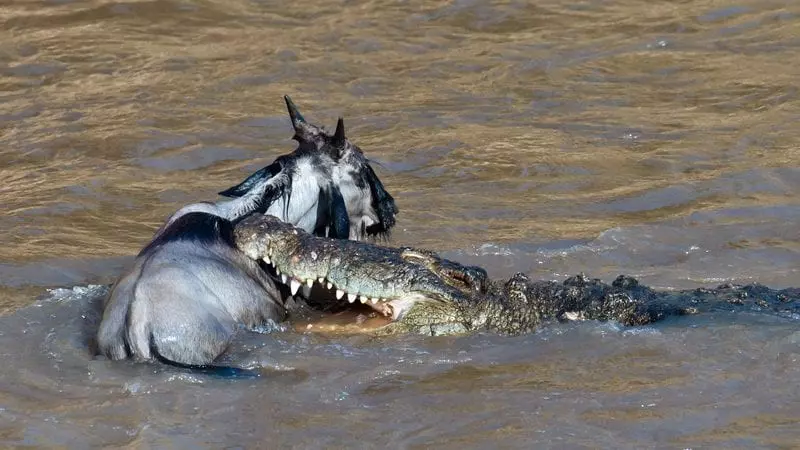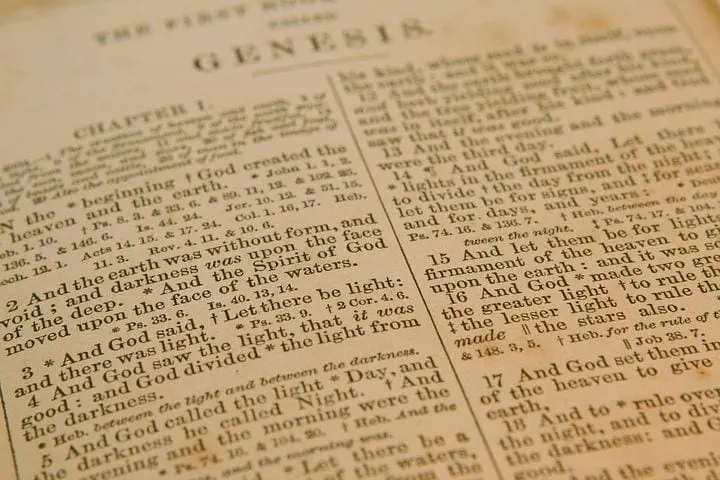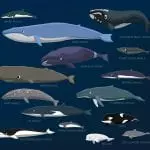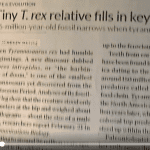[Originally posted as Theistic Evolution: What’s Wrong with the Idea that God Used Evolution to Create Everything?]
In a nutshell, theistic evolution is the belief that God used evolution to bring about the variety of life on Earth over millions of years. The Bible plainly disagrees with theistic evolution. More and more student-aged Christians are becoming theistic evolutionists—especially those raised in public school and don’t receive much biblical training at home or in church.
One of the most common testimonies we hear from high schoolers goes something like this: They become Christians at a young age, but they don’t get much training in doctrine, especially creation-evolution related topics. After being saturated in public school evolutionary teaching (and not hearing the Biblical Creation view from parents or church leaders), they start developing cognitive dissonance—the tension that develops when holding two contradictory beliefs.
They begin questioning: “I know that God exists, but they seem to present so much credible evidence for evolution at school, and it seems like the ‘smart scientists’ tend to believe it.” Many take the shortest route to resolving this mental tension by adopting a worldview that is somewhere between their Christian faith and evolution. Without even knowing it, they have just adopted the view of theistic evolution and compromised their trust and reliance on the Bible.
In one subtle play, the enemy replaces belief in an all-powerful God who spoke creation into existence with a “god” who creates life through a slow, random, murderous process of death and suffering. If true, the Bible wouldn’t really mean what it says. Should we trust a god who lied to us about our beginnings? Those who pretend there’s nothing wrong with this, downgrade the Bible and suspend reason. Exposing six fatal flaws with theistic evolution resolves the issue by leaving the Genesis record standing tall.
The Six Fatal Flaws of Theistic Evolution
We’ve distilled the major problems of theistic evolution into a list of the top six. As we’ll see, the problems with theistic evolution are not just some abstract theological problems—they bring a serious impact in the daily lives of believers. After all, our beliefs form the roots of our actions and the sum of our actions make up our lives and our choices.
Adam Versus Apes: Theistic Evolution Denies the Bibical Creation of Adam and Makes Apes Our Ancestors
The Bible is clear that Adam was created spontaneously and supernaturally by God, in God’s own image and likeness, out of the dust of the Earth (Genesis 1:26 and following). We are not made in the image of some lower ape-like creature, and the “image” of God and His “likeness” certainly does not match that of an ape.
Genesis also gives us a strong clue that we did not evolve from any type of “lower life form” or ape-like ancestor. Adam’s first order from God was to study and name all the animal kinds. After doing this, Adam noticed that none of them represented a suitable “match” for his “kind” (humans) (Genesis 2:20). God’s solution was to draw a helper/companion from Adam’s own side and create Eve. Adam’s response to this was: “This is now bone of my bones, and flesh of my flesh; she shall be called Woman, because she was taken out of Man” (Genesis 2:23) (emphasis added).
How is it possible that we evolved from ape-like creatures if Adam had single-handedly studied and named all the animal kinds on earth and determined there wasn’t a single creature—chimps included—that resembled his kind? Christians who ascribe to theistic evolution simply cannot reconcile monkey-to-man evolution with the Bible.
Making this idea even worse, evolution holds that humans exist as they are today because our particular line of ape-like ancestors out-lasted and even out-killed other varieties. This is a far cry from humans being specially created out of the dust of the Earth in the image of a loving and intentional God. Jesus Himself clearly disagreed with the ideas that millions of years of human evolution occurred by stating, “But from the beginning of the creation, God ‘made them male and female’” (Mark 10:6) (emphasis added).
Biblical Order of Creation
The basic order of the Creation account in Genesis 1 disagrees with modern, man-made ideas of how evolution supposedly unfolded (see Table 1).

Table 1 lays out how the Biblical order of Creation is opposite to how evolution supposedly happened.
Theistic Evolution Makes Death, and Not God, Our Creator
No matter which “version” of evolution one holds to—whether naturalistic evolution without a God or theistic evolution with a process started by God and left to run its course, or progressive creation where God uses cosmological and geological evolution while occasionally wiping out and creating new life forms along the way—the core problem with all versions of evolution is its proposal that the process of death is set up as the creator of life.
Each version of evolution has a bloody, competitive, “survival of the fittest” process as the creator of new life forms. Each starts from lower life forms and eventually leads to man over millions of years. There are some serious problems with this view, and it could not differ more from the biblical account! What kind of all-powerful God would need to use a cruel, experimental process to bring about the variety of life on earth?
The idea of punctuated equilibrium (a view even held, in some form, by many progressive creationists) holds that God advances evolutionary development by isolated episodes of rapid speciation between long periods of little or no change. In other words, God used “random, wasteful, inefficiencies” to create the world into which Adam was placed.[i] What kind of God couldn’t get it right the first time, so He had to experiment with hapless life forms?
To the contrary, the Bible holds that God initially created everything perfect, and then our sin initiated the process of death, suffering, and bloodshed. How could God look upon all His Creation and call it “very good” (Genesis 1:31) if animals (and later humans) were tearing each other apart to survive…for millions of years before Adam? Why would an all-powerful, loving, merciful God need to use a blood-filled, clumsy, random process to populate the Earth with animal variety? God’s initial Creation was perfect, but we messed it up! Theistic evolution violates clear Bible statements and clearly seen attributes of God.
If natural selection and survival of the fittest is going on in today’s world, this process is a “mindless” one without creative agency. For example, consider a large field with a healthy population of grasshoppers in two color varieties, green and yellow. When the fields are green in the springtime, the green grasshoppers may thrive more than the yellow ones because they blend in to their surroundings, being less visible to their predators. Then, in the fall when the fields turn yellow, this process is reversed, and the yellow grasshoppers thrive.
Would this natural selection produce new and useful genetic information? Certainly not! Rather, the pre-programmed gene variability that God installed into the grasshoppers interacts with their environment. The grasshoppers are all still grasshoppers! We see the same principle in oscillating bird beak shapes. Darwin’s finches are proudly used to promote evolution in today’s school textbooks. However, they show no net evolution—just a long cycle between skinny and stout beak shapes.
Theistic Evolution Places Death Before Sin
Perhaps the most serious problem with theistic evolution is that it has man coming on the scene after billions of years of death-filled evolution has taken place. This makes the brutal “survival of the fittest” process God’s idea instead of the consequence of sin. To the contrary, according to the Bible, when man appears in Creation, he is perfect and sinless and there’s no such thing as death. Death does not come into the picture until man sins (“but of the tree of the knowledge of good and evil you shall not eat, for in the day that you eat of it you shall surely die,” Genesis 2:17). So, you can’t have death of mankind before the Fall of man and have a logical foundation for the Gospel (see also Romans 5:12 and 1 Corinthians 15:22). If death already existed all around Adam, God’s warning of death as a consequence for eating the forbidden fruit would have been meaningless and idle.
In addition to God clearly warning Adam that “death will come” if he sins, two stark truths in Genesis address this important “death before sin” topic.
First, animals did not eat each other at the beginning of Creation, and thus there was no “survival of the fittest” or “natural selection” process available to drive evolution. Humans and animals originally ate vegetation:
And God said, ‘See, I have given you every herb that yields seed which is on the face of all the earth, and every tree whose fruit yields seed; to you it shall be for food. Also, to every beast of the earth, to every bird of the air, and to everything that creeps on the earth, in which there is life, I have given every green herb for food’ (Genesis 1:29–30).
God did not endorse humans using animals as food until after the Flood: “Everything that lives and moves about will be food for you. Just as I gave you the green plants, I now give you everything” (Genesis 9:3, emphasis added). Further, God put the fear of man into animals after the Flood because they would be a food source from that point forward: “And the fear of you and the dread of you shall be on every beast of the earth, on every bird of the air, on all that move on the earth, and on all the fish of the sea” (Genesis 9:2).
Second, how could God look over the billions of years of blood-filled “survival of the fittest” evolution until it finally reached man and then call Creation “very good” (Genesis 1:31)? This would make Adam’s sin and the curse of death meaningless! If death was used to create Adam and Eve, what was the real consequence of sin?
Figure 1. Is this a “very good” creation? Carnivory entered the world after sin.
God’s original creation was perfect. The first chapter of Genesis states six times that what God had made was “good” and the seventh time that “God saw everything that He had made, and indeed it was very good” (Genesis 1:31). Now, however, we can look at the world around us and see there has been an obvious change. Many animals live by predation. Lions eat their prey while still alive. Bears eat young deer shortly after they are born.
The Believer Loses the Power that Comes From Fully Believing in God’s Word
Put simply, there is power that comes from fully believing in the Word of God. A straightforward reading of the Bible’s account of origins as laid out in Genesis 1 and 5 and Exodus 20:11—without spin or interpreting it through man’s lens of “science”—will lead an honest reader to six days of Creation just thousands of years ago. If God really used evolution to create everything, He could have simply told Moses to write it down that way! But He didn’t, and the Creation account reads much differently than how it might read if evolution took place over millions of years. The Bible is clear in several places that God “spoke” creation into existence (every time before creative acts in Genesis as well as elsewhere in the Bible—e.g., Psalm 33:4–11).
Compromising on God’s Word by agreeing with theistic evolution robs the Christian of the power that comes from standing fully on the Word of God and claiming its authority. When Dr. Charles Jackson with Creation Truth Foundation was asked, “Do you meet many Christians at college who are drifting away from the faith?” his response was eye-opening:
They’re more than being drifted away from the faith; there’s a current that’s created under them that pulls them away from the faith. When you put a question mark after any Bible verses that don’t have them there already (or verses that give a disclaimer like, ‘this is a mystery’), like ‘in six days the Lord God created heaven and earth and all that’s in them’ (Exodus 20:11), instantly you have a quantum drop in the joy and power of the Christian walk—all of the gifts of God in you—you can feel it. It’s like someone pulled the plug and you are running on battery now, and a low battery at that. [ii]
There is a close association between the Word of God and the Power of God (Hebrews 4:12, 6:5; Matthew 22:29). Can a Christian live a power-filled life and walk in God’s will while denying the Word of God? Christians will live a more power-filled life when they strongly align what they believe and how they live to the Word of God. Every stanza of Psalm 119 mentions the Word in some way for this reason.
Denying God’s special creation and not believing that He created the world by His Word (Hebrews 11:3; Psalm 33:6) creates a deep crack in the foundation of a Christian, even in ways that are sometimes not known by the person doubting. John Macarthur[iii] adds to this discussing by stating:
Christians will get out there, saying “Boy, we’re against abortion, and we’re against homosexuality, and we’re against Jack Kevorkian because he’s murdering people, and we’re against euthanasia, and we’re against genocide and, you know, we’re against the moral evils of our society, etc.” Why are we against those things? Can you tell me why? Why are we against those things?
Give me one reason. Here it is, because they’re forbidden in Scripture. Is that not true? The only reason we’re against abortion is because God’s against it. How do we know that? Because it’s in the Word of God. The reason we’re against homosexuality, adultery, etc. is because of the Bible. You see, we stand on the Scripture. But the problem is we don’t want to stand on the Scripture in Genesis. So we equivocate on whether the Bible is an authority at all. What do you think the watching world thinks about our commitment to Scripture? Pretty selective, isn’t it?
Theistic Evolution has Christ Dying For the Sins of a Mythical Adam
The genealogies in Genesis 5 and 10 and Luke 3 lead directly back to Adam, the first man created by God. But if these genealogies don’t lead back to a real Adam who sinned, then who do they lead back to? Because the “sinner” Adam and the Savior Jesus are linked together in Romans 5:16–18, any theological view which mythologizes Adam undermines the biblical basis of Jesus’ work of redemption.
[i] Hugh Ross, “Species Development: Natural Process or Divine Action,” Creation and Time Audiotape, Tape 2, Side 1 (Pasadena, CA: Reasons to Believe, 1990).
[ii] Overview Eric Hovind and Paul Taylor welcome special guest Dr. G. Charles Jackson in the August 18, 2011 episode of Creation Today.
[iii] John MacArthur, “Creation: Believe It or Not, Part 2 (90–209)”: www.gty.org/resources/sermons/90-209/creation-believe-it-or-not-part-2 (March 28, 1999) (January 27, 2017).







